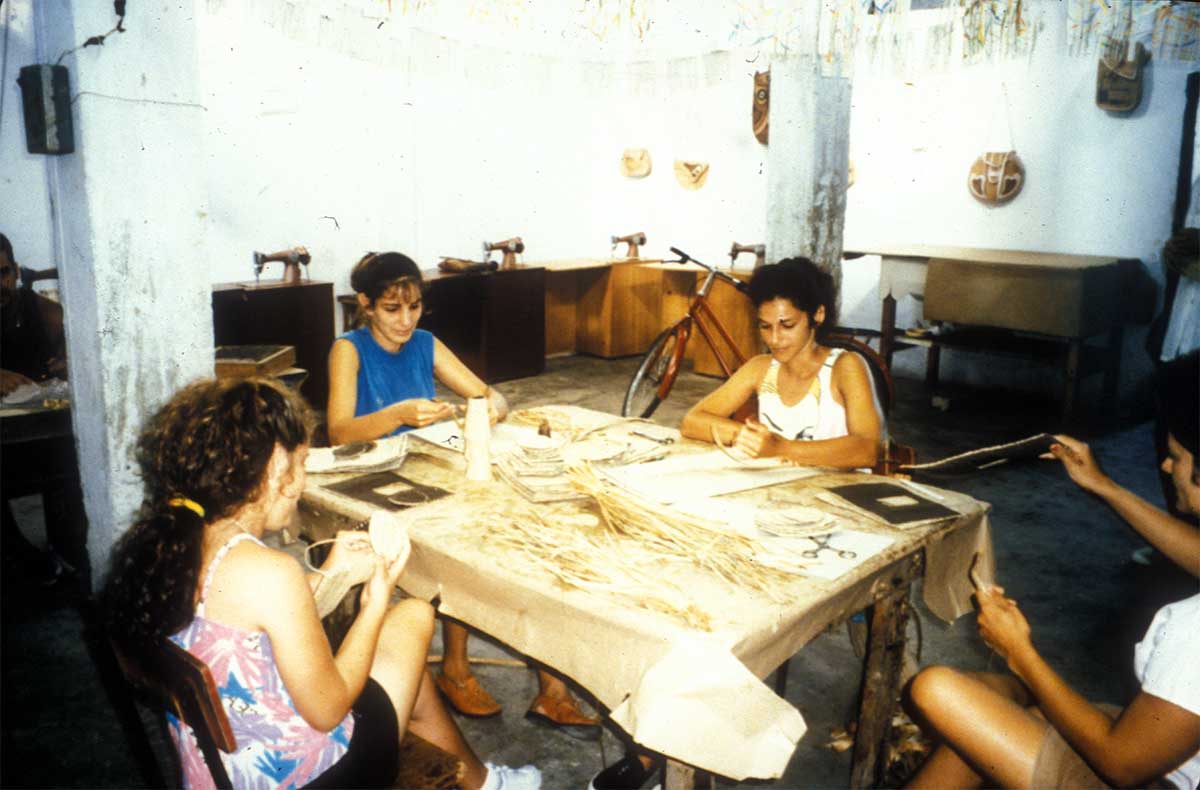In the early 1990s, many Cubans held out hope that small-time, artisanal businesses and state cooperatives like this one might thrive under the double barrier to neoliberal capitalism that the Cuban Communist Party’s monopoly on economic control and the US embargo together represented. We were wrong. Cuba’s Communist state has since become the primary partner of foreign multinational corporations in upholding standards of “free trade” and globalized production that are no different from its traditionally capitalist rivals: in Cuba’s joint ventures and zonas francas [free trade zones] there is no transparency within plants but plenty of cheap labor, loose protections and strictly policed standards of conduct for workers to follow. These conditions accompanied the rise of state corporations headed by officials of the Revolutionary Armed Forces and the collapse of economic relics of the Soviet era pictured here: a women’s weaving cooperative devoted to making hats, decorative objects and years earlier, clothes for local farm workers and kids’ school uniforms. Puerta de Golpe, Pinar del Rio, February 1997.
